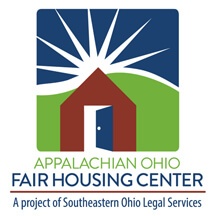 What is fair housing?
What is fair housing?
Fair housing is the right to choose housing free from unlawful discrimination. The federal Fair Housing Act (FHA) and Ohio laws protect people from discrimination in housing based on the following protected classes: race, color, religion, national origin, sex, familial status, disability, ancestry and military status. Discrimination is illegal in housing transactions such as rentals, sales, lending, and insurance.
Commonly Asked Questions and Answers
What is the definition of a disability?
A disability is a physical or mental impairment which substantially limits one or more major life activities, such as caring for one’s self, performing manual tasks, walking, seeing, hearing, speaking, breathing, learning and working. It also includes having a record of such an impairment or regarding someone as having such an impairment when they do not.
May housing providers refuse to rent to me because they believe I will not be safe or cannot take care of myself?
No. The only exception, which applies to all applicants, is if an individual’s tenancy poses a direct threat to the health or safety of others or would result in substantial physical damage to the property of others and a reasonable accommodation cannot significantly reduce or eliminate the threat.
What is a reasonable accommodation?
Housing providers must permit reasonable accommodations requested by residents. A “reasonable accommodation” is a change, exception or adjustment to a rule, policy, practice or service that may be necessary for a person with a disability to have an equal opportunity to use and enjoy a dwelling. For example, reasonable accommodations include allowing an assistance animal even if there is a “no pets” policy or creating a reserved accessible parking space for a specific resident. A request for a reasonable accommodation may be denied if providing the accommodation would impose an undue financial and administrative burden on the housing provider or would fundamentally alter the nature of the provider’s operations, determined on a case-by-case basis. When a housing provider refuses a requested accommodation because it is not reasonable, the provider should discuss with the requester whether there is an alternative accommodation that would effectively address the requester’s disability-related needs.
What is a reasonable modification?
Housing providers must permit reasonable modifications requested by residents. A “reasonable modification” is a structural change made to existing premises occupied or to be occupied by a person with a disability, so that he or she can fully use and enjoy the premises. Reasonable modifications can include structural changes to interiors and exteriors of dwellings, and to the common and public use areas. The resident pays the cost of the modification. Examples of reasonable modifications include installing grab bars or ramps, lowering counter spaces, and allowing a deaf or hard of hearing tenant to install strobes. Section 504 of the Rehabilitation Act of 1973 may require landlords that receive federal funds to pay for reasonable modifications.
May the housing provider ask for details or proof that I am disabled?
The housing provider may ask for verification of a person’s disability, if it is not obvious or otherwise known to the housing provider, and may verify that a request is related to that disability. If requested, the individual may provide a written statement from a licensed medical or social service professional or other third party stating that the applicant/resident qualifies as an individual with a disability. The housing provider may not ask the person with a disability or the certifying professional about the nature or severity of the individual’s disability.
Lenders Also May Not Discriminate
These are examples of things a lender may not do because you are a person with a disability:
• Refuse to meet with you because you request a sign language interpreter or need some other reasonable accommodation, such as meeting in a wheelchair-accessible location
• Require medical documentation from you or require that you prove that your disability income will continue for a specified period of time, such as three years.
• Charge you a higher interest rate or fees
• Fail to count all your sources of income, including any disability income.
• Hold you to a higher qualification standard or require a higher credit score.
• Require that you make a larger down payment or pay more in closing costs.
• Appraise the property differently because it has features such as strobes or ramps.
Request for Reasonable Accommodation/Modification
Housing providers are required to make a reasonable accommodation in their rules, policies, practices and procedures, and to allow reasonable modifications (changes to the physical structure) for individuals with disabilities. A request need not be in writing, but it is recommended that a request be made in writing so that there is a record of both the request and the date it was sent.
When considering a reasonable accommodation/modification request, a housing provider may take only the following into consideration:
• Is the individual for whom the request is made a person with a disability? Is the requested accommodation or modification necessary to allow the person with a disability an equal opportunity to use and enjoy a dwelling, including common areas? This is not determined by the housing provider but by the individual; however, confirmation from a qualified third party may be requested.
• Would the requested accommodation impose an undue financial and administrative burden on the housing provider? For a modification, this may only be considered if the housing provider receives federal financial assistance.
• Would the requested accommodation require a fundamental alteration in the nature of the program?
Under no circumstances may a housing provider ask about the nature or severity of the disability. Housing providers may request information about the relationship between the person’s disability and the need for the requested accommodation or modification.
Providers may ask questions that clarify what it is about the rule, policy, practice or procedure that serves as a barrier or whether there are alternatives that would work for the person with a disability. This may enable providers to offer an alternative solution if the requested accommodation is an administrative and financial hardship or would fundamentally alter the nature of a provider’s operations.
